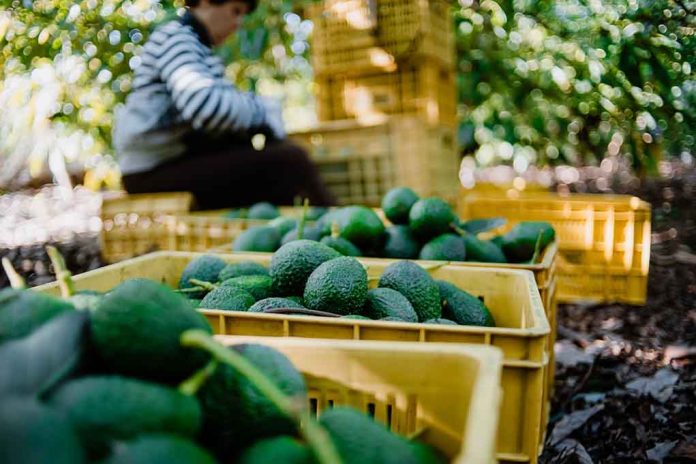
A federal judge in Kentucky has temporarily blocked a Biden Administration rule designed to extend collective bargaining rights to migrant farm workers in four states, sparking a debate about its impact and legal standing.
At a Glance
- The rule aimed to grant collective bargaining rights to foreign H-2A visa farm workers.
- U.S. District Judge Danny Reeves issued a preliminary injunction in four states.
- The regulation was challenged for contradicting existing labor laws.
- Attorney General Patrick Morrisey hailed the ruling as upholding the rule of law.
Judicial Intervention Halts New Rule
The Biden Administration’s proposed rule intended to extend collective bargaining rights to migrant farm workers holding H-2A visas. This regulation faced criticism for potentially infringing on the National Labor Relations Act by conferring rights without Congressional approval. The federal court’s preliminary injunction, under U.S. District Judge Danny Reeves, applies specifically to Kentucky, Alabama, Ohio, and West Virginia, temporarily preventing the rule’s enforcement.
The Department of Labor and its officials have been restrained from enforcing the rule amid claims of overstepping authority. The controversy stems from the regulation creating additional burdens on the agricultural sector, with concerns it may increase operational difficulties and costs. This decision follows a similar injunction in Georgia, further complicating the legal terrain regarding labor rights for migrant workers.
Instead of focusing on solutions to help America's farmers make ends meet, the Biden-Harris administration is more concerned with collective bargaining for non-citizens here on temporary visas.
Once again, thank you, @kyoag Coleman, for standing up for common sense. https://t.co/z9iws92HkU
— Republican Party of Kentucky (@KYGOP) November 26, 2024
Legal and Political Reactions
West Virginia Attorney General Patrick Morrisey referred to the ruling as a “win for the rule of law,” emphasizing the importance of maintaining legislative consistency. With the Department of Labor’s powers questioned, regulatory boundaries are being scrutinized. The impact of these legal constraints raises significant questions about how the balancing act of safeguarding worker rights and maintaining sector stability can best be achieved.
“This is a win for the rule of law in particular to putting a halt to an attempt from an administrative agency to legislate without the consent of Congress,” said West Virginia Attorney General Patrick Morrisey.
The involvement of seven Kentucky farmers in filing a lawsuit against the administration highlights the tensions between federal policymaking and local agricultural interests. Trade groups have joined these legal efforts, seeking to protect farmers in states beyond the scope of previous rulings. The case encapsulates broader debates about the viability of the H-2A visa program and its role in the agricultural labor force.
Federal judge blocks Biden labor protections for foreign farmworkers https://t.co/sK08VHRowx
— Fox News Politics (@foxnewspolitics) November 26, 2024
Implications for Farmers and Labor
The ongoing blocks on the Department of Labor’s rule highlight deep-seated concerns within the farming community. Complementing the legal arguments, there is an underlying economic apprehension around the proposed changes. Farmers, many reliant on seasonal workers under the H-2A visa program due to a lack of local labor, argue the regulation could result in higher operational costs and increased food prices amid existing economic pressures.
“We should be working to help Kentucky’s farmers, not put them out of business. This unlawful and unnecessary rule from the Biden-Harris Administration would have made it harder to get farmers’ products to grocery store shelves and would have increased already high prices for families,” said Kentucky Attorney General Russell Coleman.
While judicial decisions have thus far limited the rule’s enforcement to certain states, its nationwide implications remain significant. Legal challenges are likely to continue as the courts are called upon to interpret both the permissible reach of administrative agencies and the intent of existing labor statutes across different state jurisdictions.
Sources:
- https://www.breitbart.com/politics/2024/11/25/second-judge-stops-biden-harris-rule-giving-union-rights-foreign-workers/
- https://news.bloomberglaw.com/daily-labor-report/h-2a-farmworker-organizing-protections-blocked-by-third-court
- https://www.foxnews.com/politics/federal-judge-blocks-biden-labor-protections-foreign-farmworkers
- https://justthenews.com/nation/states/center-square/judge-blocks-rule-giving-ohio-kentucky-west-virginia-alabama-foreign










